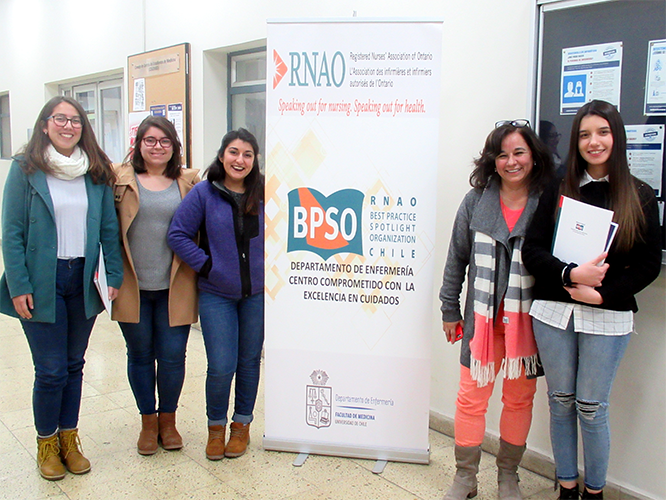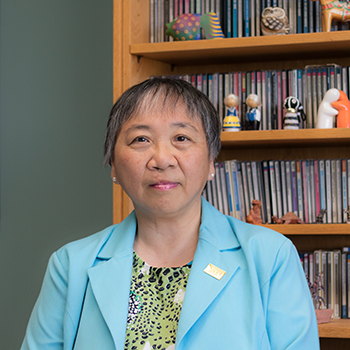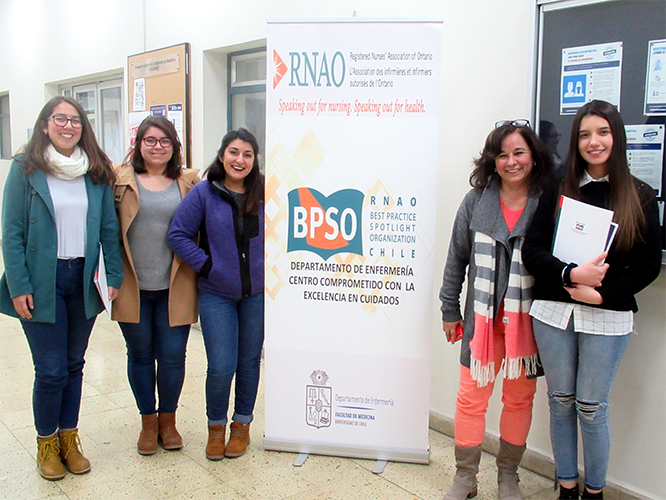
As a Best Practice Spotlight Organization (BPSO) co-ordinator and RN for Toronto Public Health (TPH), May Tao sees the impact she is making every day supporting the implementation of RNAO’s best practice guidelines (BPG) at her workplace.
In her role, Tao collaborates with staff to come up with plans to implement BPGs and evaluate them. “I…cheer them on,” says Tao, noting that having supportive and committed leadership is important to achieving success.
Since becoming a BPSO co-ordinator in 2009, Tao has celebrated many accomplishments, but the one she is most proud of is the implementation of RNAO’s Integrating Tobacco Interventions into Daily Practice BPG.
If a client wants to quit, they are given resources and support...
“Every single staff (member) at TPH is required to ask if a client smokes, and (if so), would they like to quit,” she says.
If a client wants to quit, they are given resources and support, such as nicotine replacement therapy (e.g. patches, gum) and referrals to free services (e.g. The Smokers’ Helpline). TPH has seen higher consistency in assessing individuals who use tobacco, more use of tobacco intervention strategies, and an increase in inter-departmental collaboration.
Tao is looking forward to sharing these positive results as she works towards becoming an RNAO certified BPSO trainer this fall. In the role, she will share her knowledge internationally. Certified trainers are nurses who have been a BPSO lead and/or possess a strong knowledge of BPG implementation and are formally trained and certified by an RNAO master trainer.
In September, Tao will visit China with International Affairs and Best Practice Guidelines (IABPG) associate director Heather McConnell to launch the BPSO orientation program for the Lanzhou University Second Hospital. She will help complete audits for existing BPSOs, and deliver a BPG Champions workshop.
“This is a great opportunity to spread quality care globally,” Tao says, adding she hopes to build capacity with BPSOs in China that will enable them to consistently apply evidence into practice.
Amalia Silva-Galleguillos is already leading the way in BPG implementation in academic institutions in Chile and around the world. As a certified BPSO trainer (the first) and associate professor for the University of Chile, she says the experience has opened doors in her nursing career. “It has allowed me to work with many nurses with a great passion for nursing and with a goal to deliver quality care,” she says. Being a facilitator for change at the national and international level is a great honour, she adds.
As a trainer, Silva-Galleguillos teaches nursing professors, nursing students and other professionals about RNAO BPG implementation, and works with academic institutions to come up with the required framework to implement BPGs into the nursing curriculum. In addition, she works with university directors to address questions related to implementation. As a result of her work, 600 nursing students have graduated from the University of Chile with enhanced knowledge of RNAO’s BPGs.
Silva-Galleguillos was certified by master trainer and RNAO CEO Doris Grinspun, with whom she co-led the BPSO orientation program for the Autonomous University of Bucaramanga in Colombia, the University of Valparaiso in Chile, and the Atlantic University Nursing Program in Portugal. The pair taught participants how to drive change and integrate BPGs into their nursing curriculum. She says she sees her goal very clearly: to change the culture of nursing in Latin America.
“Unlike Canada, the U.S. and Europe, where evidence-based nursing has been around for more than 20 years, in Latin America, it is still in the first steps to being implemented,” she says. Through the implementation of guidelines, “…we can progress towards a cultural change to care based on research.”


